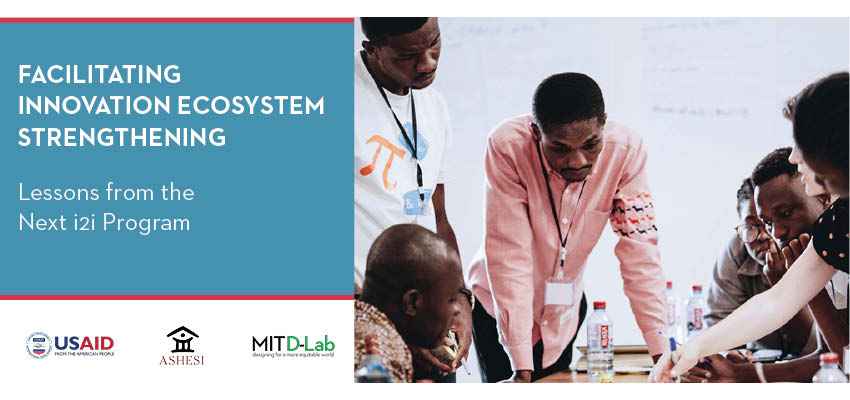
Facilitating Innovation Ecosystem Strengthening: Lessons from the Next i2i Program
Overview
Innovation thrives in a local context when there are enabling conditions that support it, including local champions, appropriate infrastructure, and a favorable policy environment. The local system context that gives rise to and enables innovation in any particular place is known as the local innovation system (IS) or, from a perspective informed by ecology, the local innovation ecosystem. Like a biological ecosystem, the local innovation ecosystem refers to the actors, other elements and resources (living and nonliving), and relationships between them that work together to enable or disable the production of innovation in a particular geography.
This guide introduces a process and a series of facilitation tools that local organizations and individuals can use to design, plan, and launch a local innovation ecosystem strengthening process. The guide covers practical topics such as how to identify appropriate participants for ecosystem strengthening working groups, how to budget for and staff such efforts, how to organize an initial series of working group meetings, and a recommended sequence in terms of the agendas for those meetings. The guide also provides detailed sample meeting agendas and specific activities that can be facilitated using worksheet templates that are included in an accompanying digital workspace on Miro.
The recommendations and lessons learned presented in this guide are drawn from over a decade of research conducted by Elizabeth Hoffecker, lead researcher for the MIT D-Lab Local Innovation Group, as well as the experience that MIT D-Lab and Ashesi University gleaned from efforts to implement these lessons in the context of a specific ecosystem strengthening effort in Accra, Ghana, implemented as part of the USAID-funded Next i2i program.
More Information
Contact
Gordon Adomza, Next i2i Program Director
Elizabeth Hoffecker, MIT D-Lab Research Scientist, Local Innovation Group Lead

